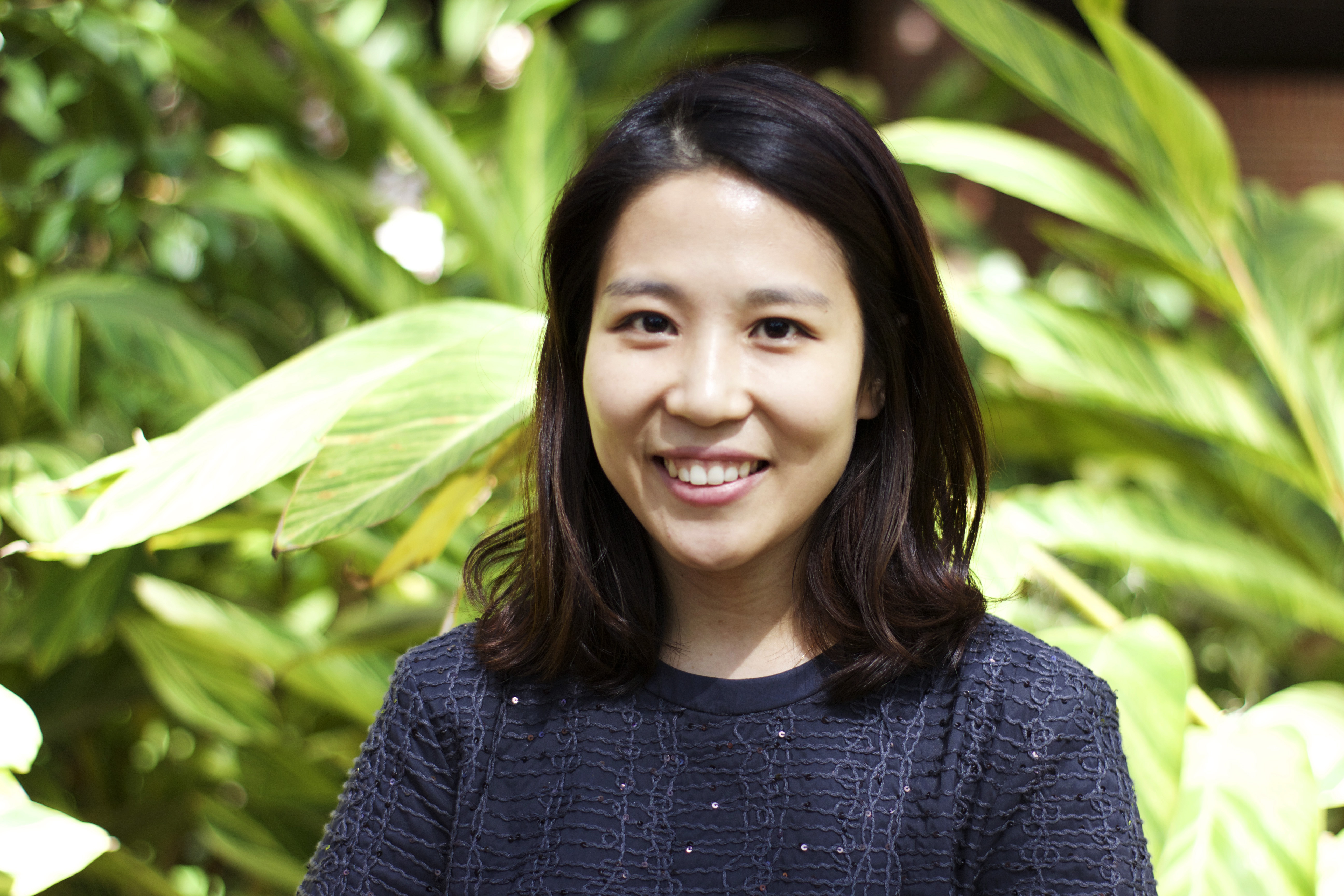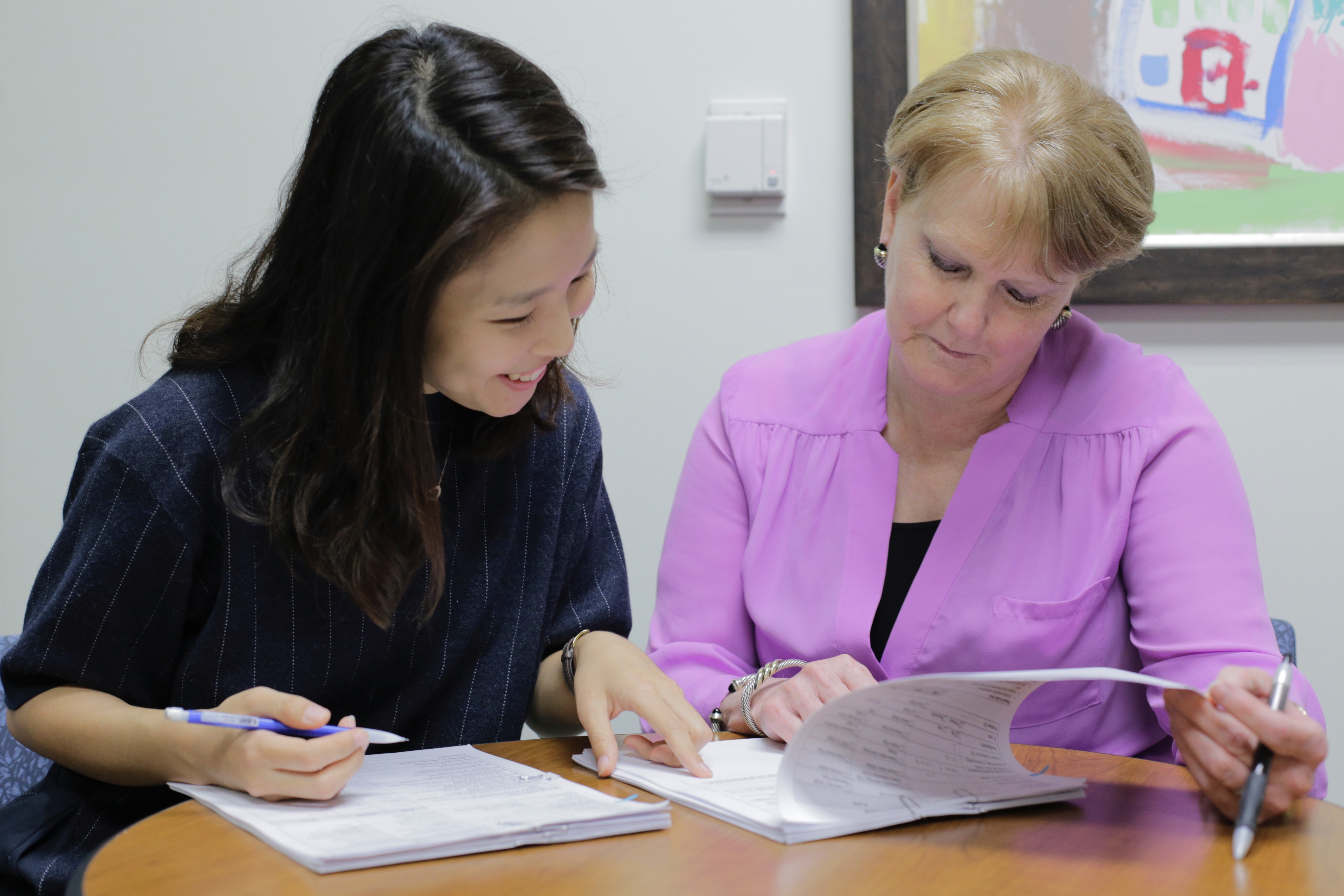Meet JinHee Hur, a third-year doctoral student in the School of Special Education, School Psychology, and Early Childhood Studies. Originally from South Korea, JinHee’s interests lie in thinking about how teachers and parents can support children’s early literacy and language skills. She is particularly interested in ways to support teachers and parents of dual language learners. She works with Dr. Patricia Snyder, Dr. Mary McLean, and Dr. Brian Reichow on the center’s Embedded Instruction project, and on the DEC Recommended Practices syntheses.
JinHee dropped by to speak with me a little about her diverse experiences in early childhood, and her work at the Anita Zucker Center.

Alexis Brown: Hi JinHee, thanks so much for stopping in for an interview! Let’s start off by talking about your background in early childhood.
JinHee Hur: I’m originally from South Korea. I came to the U.S. because I wanted to receive my college education in the States. What I learned in college really guided why I wanted to stay in the field of early childhood studies.
AB: How so?
JH: Throughout my college years, I worked as an undergraduate research assistant at Purdue University in a lab where we explored the home literacy environment. For example, we examined how parents read books to their children, and how parents’ book-reading behaviors predict children’s early literacy and language skills. For this project, I primarily visited families living in challenging circumstances.
I saw a lot of discrepancy in children’s literacy skills and other developmental learning within children enrolled at Head Start, and between children enrolled at Head Start and the children at the Purdue lab school. I learned from courses and I experienced that teachers and parents were very influential to children’s learning and development. So, I wanted to study more to provide supports to teachers and parents that will lead to closing the gap.
AB: Why did you become involved with work in early childhood, and specifically for you, your interests in literacy and language?
JH: When I was young, I was a dual-language learner. I had ESL teachers who were really supportive of my learning English. However, in my experience, I’ve noticed that there is room to increase the quality of instruction to enhance English early literacy and language skills for children who are DLL. Also, parents may not have the informational resources to support children’s English skills at home. To provide a similar experience that I fortunately experienced, we need to find the evidence-based instructional strategies for teachers and parents.
AB: What’s something interesting about early childhood that most people don’t know?
JH: Early childhood is really a critical period for everything. The brain develops very early on, making a road map almost. The importance of this critical period is supported by research, and I think it’s shared belief among the people who are in this field. But people who are not in the field may not recognize or appreciate its importance. I think people assume children are just playing, but they’re not just playing, they’re learning and developing.
AB: What’s the coolest thing about your work at the Anita Zucker Center?
JH: I’m very appreciative that I get to learn and work with the leaders in the field. My advisor is Dr. Snyder, but I also work with Dr. Reichow on the DEC synthesis and Embedded Instruction project. Dr. McLean is on my committee, which allows me to learn from her insights and knowledge. I got to co-teach an undergraduate course on early childhood assessment with her this semester. These experiences enable me to grow as a researcher and teacher and I’m fortunate to have these learning experiences.
Another experience was the Early Childhood National Summit in February. I got to hear what the leaders in the field had to say about the status of current research, policy and practice in early childhood, identifying actionable goals to move us ahead, and what needs to be on the research, policy, and practice agendas to achieve the goals. It was a really exciting learning experience and, as students, we were grateful to have the opportunity to attend.

JinHee Hur and Dr. Patricia Snyder, Director of the Anita Zucker Center, review project related documents together.
AB: What’s a way that your work at the center has impacted your perspective about early childhood?
JH: The experiences I’ve had through projects and classes made me think about and really appreciate each child’s unique strengths, needs and characteristics to better support their learning and development. We need to keep working on their strengths and really appreciate them while at the same time, providing strategies, or helping them learn or ameliorate their weaknesses by providing them with learning opportunities that are meaningful for children and for their families.
Also, the work I’ve done at the center has enabled me to value family-centered practices. It’s critical to value parents’ concerns and priorities instead of imposing what we think is important. I think center faculty members have strong beliefs in that and I think I’ve gotten to appreciate it more by working closely with them.
AB: What’s a challenge that you’d tackle for the benefit of children and families?
JH: For my dissertation, I want to look at the relationship between teachers’ early literacy instruction and children’s early literacy and language skills, and how the strength of the relationship differs based on dual language status. I think we have extensive knowledge about what type of early literacy instruction is effective in promoting children’s early literacy skills, but not much evidence on how the teacher instruction might be differentially effective for dual language learners. With the growing number of DLLs in the U.S., I hope the findings from my dissertation can provide instructional supports for DLLs like myself.
Story and Portrait by: Alexis Brown
Photo of JinHee and Dr. Snyder by: Chris Gomez
Special Thanks to: JinHee Hur
